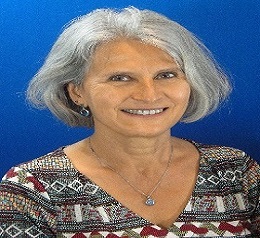Scholars International Webinar on
Cancer Research and Therapeutics
THEME: "Current Perspectives and New Challenges in Cancer Research and Therapy"
 23-24 Nov 2021
23-24 Nov 2021  ONLINE & VIRTUAL
ONLINE & VIRTUAL THEME: "Current Perspectives and New Challenges in Cancer Research and Therapy"
 23-24 Nov 2021
23-24 Nov 2021  ONLINE & VIRTUAL
ONLINE & VIRTUAL 
IPMC, CNRS, University Côte d'Azur
Title: Drug Efflux Activity of Ptch1 and Chemotherapy Resistance
Dr Isabelle Mus-Veteau (PhD) is a CNRS Research director. She heads a group in Franco-Luton’s team at IPMC (Sophia Antipolis). She has made seminal contributions to the understanding of the biological properties of the human Shh receptor Ptch1. She was the first to demonstrate that Ptch1 transports cholesterol and chemotherapeutics, and to identify inhibitors of Ptch1 drug efflux activity (patents PCT/EP2015/074771; PCT/EP17/306544.2 1462, EP193006057.1-1110).
We demonstrated that the Hedgehog receptor Ptch1, which is overexpressed in many recurrent and metastatic cancers, pumps chemotherapeutic agents such as doxorubicin out of cancer cells using the proton motive force. We discovered small molecules which inhibit the doxorubicin efflux activity of Ptch1 and enhance its cytotoxicity on adrenocortical carcinoma and melanoma cells which endogenously overexpress Ptch1, and thereby mitigates the resistance of these cancer cells to doxorubicin. Our recent results show that these Ptch1 drug efflux inhibitors also enhance the efficacy of the targeted therapy vemurafenib against BRAFV600E melanoma cells resistant to the treatment. The clinical responses to vemurafenib are heterogeneous, and almost all patients who experience an initial response ultimately acquire resistance that allows disease progression. Our results suggest that the use of inhibitors of Ptch1 drug efflux in combination with vemurafenib could be a promising therapeutic option to improve vemurafenib efficiency against treatment resistant BRAF mutated melanomas.